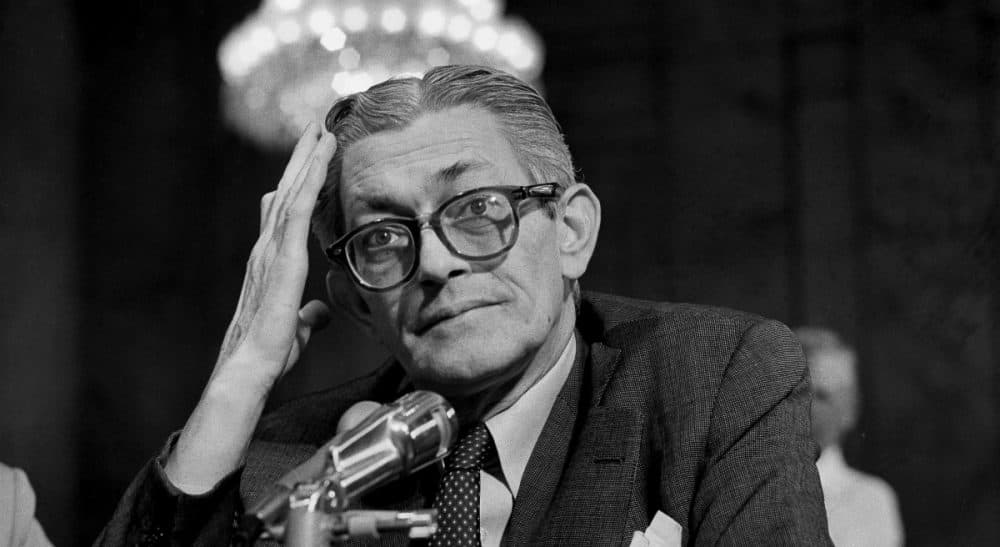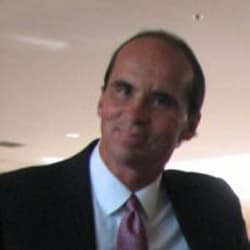Advertisement
Spying On Americans, Then And Now

Washington, like Hollywood, has an appetite for revivals. Take the movie fare this summer — "Jurassic World" (which just set a box office record), "Mad Max: Fury Road," "Terminator Genisys," "The Man From U.N.C.L.E." — not to mention the endless superhero offerings.
The public reaction [to the Church Committee revelations] was curiously subdued. Few outlets covered the hearings, and those that did ran small stories deep in the news mix. Americans, learning they were being snooped upon, didn’t seem to care.
Edward Snowden’s revelations about NSA snooping sparked a Washington-style revival. Forty years ago, amid the Church Committee hearings on U.S. involvement in assassinations of foreign leaders, congressional investigators learned that the NSA, then an agency few had heard of, had been collecting the phone records and telegrams of American citizens for decades.
Hard-left New York Congresswoman Bella Abzug, known as much for her flamboyant hats as her combative defense of civil rights, quickly convened hearings. She subpoenaed the attorney general, the FBI, the CIA, the NSA and the heads of RCA, ITT and numerous other communications giants.
The public reaction was curiously subdued. Few outlets covered the hearings, and those that did ran small stories deep in the news mix. Americans, learning they were being snooped upon, didn’t seem to care. As Rick Perlstein recounts in his brilliant political history of the era, “The Invisible Bridge: The Fall of Nixon and the Rise of Reagan,” after Watergate, My Lai, Cambodia, OPEC and so many other dismal events, “...maybe people had had enough of inquisitions,” suffering from a “kind of deadening of nerve-ends, a near inability to be surprised, much less disturbed.”
But 1975, like 2015, was a buildup year to a presidential campaign, and then, as now, candidates saw opportunity in the NSA revelations. Kentucky Sen. Rand Paul has been the most vociferous campaign voice on the scandal redux. Forty years ago, it was another Republican, and he took a vastly different view.
Ronald Reagan in 1975 was staking out a right-wing challenge to Gerald Ford, who was determined to thwart all inquiries into the NSA activities. Reagan, deftly merging his anti-Washington, pro-security message, saw little wrong with the agency’s activities and everything wrong with the probing politicians. “My own reaction after months of testimony and discussion…is much ado about — if not nothing, at least very little.” He dismissed the spying as “instances of some wrong doing with regard to keyhole peeking.” The Congress, not the clandestine, was the real menace.
Paul has revised Reagan’s formula. Congress is still the enemy — de rigueur Republican messaging since Reagan’s day — but the NSA activity, in Paul’s view, is no longer keyhole-peeking misbehavior. “As president on day one I will immediately end this unconstitutional surveillance,” Paul told Kentucky supporters in April. “I believe we can have liberty and security. And I will not compromise your liberty for a false sense of security, not now, not ever.”
Paul went on to infuriate many in his party by forcing passage of a weakened Patriot Act. Reagan, after winning election in 1980, went on to issue Executive Order 12333, which set up the framework for bulk data collection by American spy agencies — the precursor to the Patriot Act.
It is important to note that when Reagan was dismissing NSA eavesdropping in 1975, the activity was flat-out illegal. The Foreign Intelligence Surveillance Act wouldn’t become law until 1978. Hauled before the Church Committee in 1975, former CIA Director Richard Helms admitted its illegality. Gerald Ford wasn’t even aware of the activity, Helms pointed out. “You’ve got to protect the president from the dirty stuff,” he told the committee.
Reagan dismissed the spying as 'instances of some wrong doing with regard to keyhole peeking.' The Congress, not the clandestine, was the real menace.
Reagan defended an illegal activity, and Paul attacked a legal one that was, it must be noted, formatted by Reagan. (As the 2016 race unfolds, it will be entertaining to observe how many more times GOP candidates lionize Reagan while rejecting his governing techniques, including legislative compromises and tax increases.)
The Church Committee and Abzug’s subcommittee ultimately issued reports that, among cataloging a string of oft-hapless CIA assassination attempts, initiated more stringent rules for NSA data collection. Edward Snowden’s revelations have, as of now, changed the structure of the Patriot Act.
It’s summertime in Washington. The past and the present are mingling, as always, in hearing rooms and cinemas.

